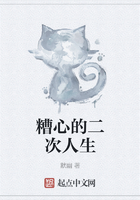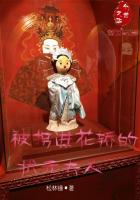In the month of August a noble Moor, of the race of the Abencerrages, arrived with a splendid retinue at the city of Cordova, bringing with him the son of Boabdil el Chico and other of the noble youth of Granada as hostages for the fulfilment of the terms of ransom. When the Moorish king beheld his son, his only child, who was to remain in his stead a sort of captive in a hostile land, he folded him in his arms and wept over him. "Woe the day that I was born!" exclaimed he, "and evil the stars that presided at my birth! Well was I called El Zogoybi, or the Unlucky, for sorrow is heaped upon me by my father, and sorrow do I transmit to my son!"
The afflicted heart of Boabdil, however, was soothed by the kindness of the Christian sovereigns, who received the hostage prince with a tenderness suited to his age and a distinction worthy of his rank.
They delivered him in charge to the worthy alcayde Martin de Alarcon, who had treated his father with such courtesy during his confinement in the castle of Porcuna, giving orders that after the departure of the latter his son should be entertained with great honor and princely attention in the same fortress.
On the 2d of September a guard of honor assembled at the gate of the mansion of Boabdil to escort him to the frontiers of his kingdom.
He pressed his child to his heart at parting, but he uttered not a word, for there were many Christian eyes to behold his emotion. He mounted his steed, and never turned his head to look again upon the youth, but those who were near him observed the vehement struggle that shook his frame, wherein the anguish of the father had wellnigh subdued the studied equanimity of the king.
Boabdil el Chico and King Ferdinand sallied forth side by side from Cordova, amidst the acclamations of a prodigious multitude. When they were a short distance from the city they separated, with many gracious expressions on the part of the Castilian monarch, and many thankful acknowledgments from his late captive, whose heart had been humbled by adversity. Ferdinand departed for Guadalupe, and Boabdil for Granada. The latter was accompanied by a guard of honor, and the viceroys of Andalusia and the generals on the frontier were ordered to furnish him with escorts and to show him all possible honor on his journey. In this way he was conducted in royal state through the country he had entered to ravage, and was placed in safety in his own dominions.
He was met on the frontier by the principal nobles and cavaliers of his court, who had been secretly sent by his mother, the sultana Ayxa, to escort him to the capital. The heart of Boabdil was lifted up for a moment when he found himself on his own territories, surrounded by Moslem knights, with his own banners waving over his head, and he began to doubt the predictions of the astrologers: he soon found cause, however, to moderate his exultation. The royal train which had come to welcome him was but scanty in number, and he missed many of his most zealous and obsequious courtiers. He had returned, indeed, to his kingdom, but it was no longer the devoted kingdom he had left. The story of his vassalage to the Christian sovereigns had been made use of by his father to ruin him with the people. He had been represented as a traitor to his country, a renegado to his faith, and as leagued with the enemies of both to subdue the Moslems of Spain to the yoke of Christian bondage. In this way the mind of the public had been turned from him; the greater part of the nobility had thronged round the throne of his father in the Alhambra; and his mother, the resolute sultana Ayxa, with difficulty maintained her faction in the opposite towers of the Alcazaba.
Such was the melancholy picture of affairs given to Boabdil by the courtiers who had come forth to meet him. They even informed him that it would be an enterprise of difficulty and danger to make his way back to the capital and regain the little court which still remained faithful to him in the heart of the city. The old tiger, Muley Abul Hassan, lay couched within the Alhambra, and the walls and gates of the city were strongly guarded by his troops. Boabdil shook his head at these tidings. He called to mind the ill omen of his breaking his lance against the gate of Elvira when issuing forth so vaingloriously with his army, which he now saw clearly had foreboded the destruction of that army on which he had so confidently relied. "Henceforth," said he, "let no man have the impiety to scoff at omens."















